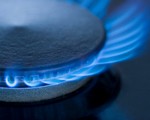According to an independent report written by Professor John Hills, thousands of people in Britain are dying every year as a result of illnesses caused by fuel poverty.
 Such is the seriousness of fuel poverty at the moment, Professor Hills’ report recommends the term be redefined to include any household that is pushed below the poverty line at any point by relatively high energy bills.
Such is the seriousness of fuel poverty at the moment, Professor Hills’ report recommends the term be redefined to include any household that is pushed below the poverty line at any point by relatively high energy bills.
The current definition of fuel poverty describes any household that spends at least 10 per cent of its income on electricity and gas central heating. Current estimates suggest there are as many as 6.6 million homes in the UK that might be described as fuel poor. Professor Hills’ revised definition of fuel poverty would reduce that number, but it would also bring into focus the health-related consequences of cold housing.
Drawing on data supplied by the Office of National Statistics and World Health Organisation, Professor Hills estimates that around 2,700 people in the UK die every year as a result of conditions caused or made worse by fuel poverty.
Also citing details from the Marmot Review, which found that 20 per cent of the 27,000 extra deaths caused by cold conditions in the UK each year occur in the coldest 25 per cent of homes, Professor Hills said: “It’s a very serious problem. There are people dying, maybe more people dying each year than die on the roads, it’s a problem of hardship for low-income families who are having to pay out more when they’ve got hard-to-heat houses and it’s a problem for countering climate change”.
Energy conservation is seen as the most effective remedy for deaths caused by fuel poverty. If the coldest quarter of homes in the UK had double glazing, cavity wall insulation and loft insulation, energy bills would drop significantly. Unfortunately, insulating the home costs money, which is obviously something that fuel-poor households do not have in abundance.
Chair of the Fuel Poverty Advisory Group, Derek Lickorish, said: “Insulating the homes of the fuel poor is the only long-term and sustainable solution to solving this problem, but they will need financial help to make this happen and this takes time. Urgent action must start today”.



The answer to fuel poverty is actually to increase fuel taxes and to give people back the revenue in benefits and lower income taxes. There’s no point in lowering fuel prices so that even more resources get wasted, heating inefficient homes. Raising prices encourages better insulation and more awareness of energy use and waste. It also penalises the tax avoiding rich that couldn’t care less how much energy they waste heating swimming pools and enormous empty houses.